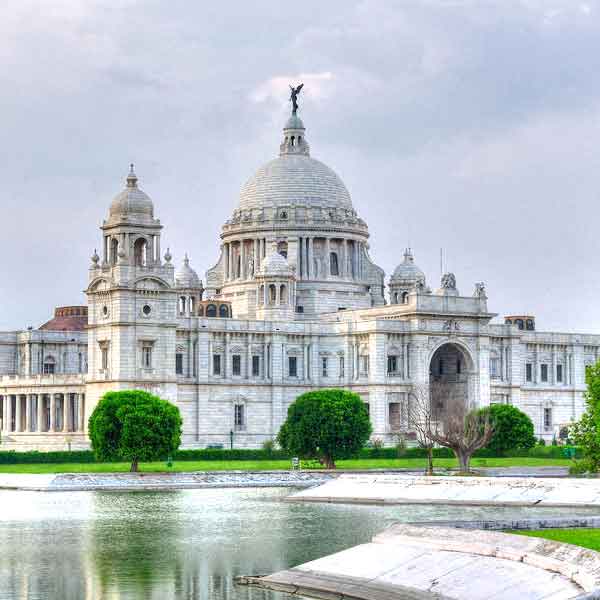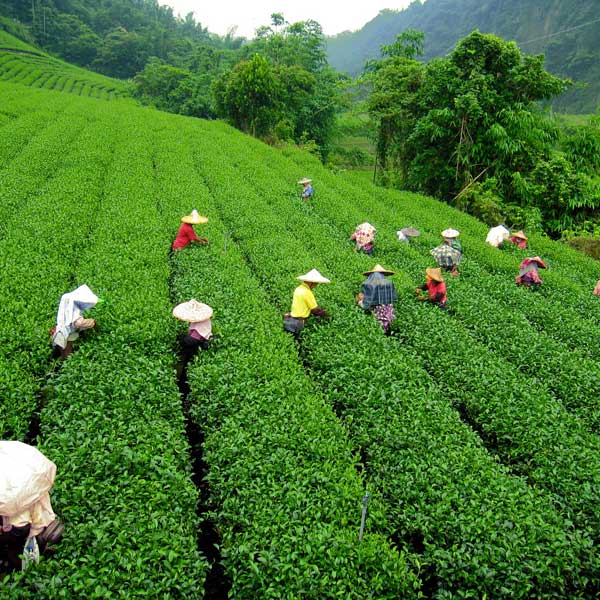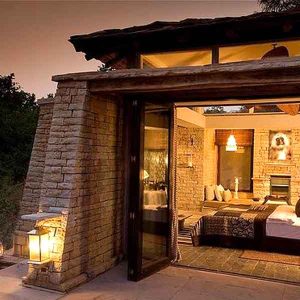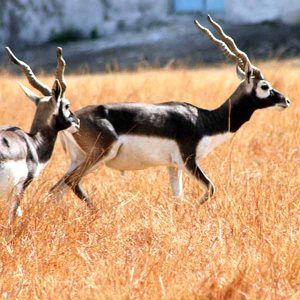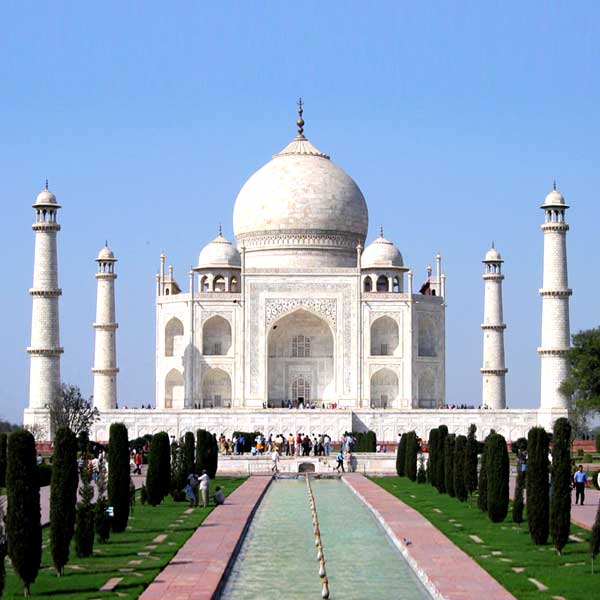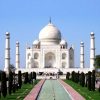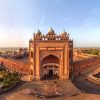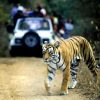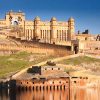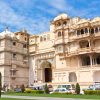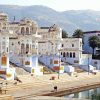Day 01: Arrive in Delhi.
Arrive in Delhi and transfer to our hotel. After lunch we will have a tour of the capital. In Old Delhi we visit the Red Fort and Jama Masjid (India’s largest mosque) and in New Delhi we see the fine colonial buildings. Built by the British Raj in the early years of the 20th century and set in spacious tree-lined boulevards. These now house various Indian governmental departments. Overnight in Delhi.
Day 02: Delhi to Agra.
We leave Delhi in the morning and take the early train to Agra – a site of some of the most famous attractions in the world. During the day we visit the imposing Red Fort of Akbar, whose mighty sandstone walls enclose the beautiful white marble Pearl Mosque and the palaces, halls, courtyards and fountains added by his sons and successors, Jehangir and Shah Jahan.
Agra also offers a wide variety of handicrafts including jewellery, inlaid and carved marble, carpets and clothes and there will be free time to explore and visit the wonderful handicraft emporiums. There will be some free time in the afternoon to relax at the hotel or for individual exploration. Overnight in Agra.
Day 03: Agra to Bharatpur via Fatehpur Sikri.
A very early start to see the incredible spectacle of the sunrise over the Taj Mahal. The Moghul Emperor Shah Jahan in memory of his beloved wife, Mumtaz Mahal, who died in 1631, built the beautiful white marble Taj Mahal. The Taj is serenely beautiful and never fails to amaze a first time visitor; the white marble exterior changes colour according to the position of the sun during the day and is matched by the rich interior detail.
After our visit it’s time to leave Agra and drive to Bharatpur via the deserted ancient city of Fatehpur Sikri. Formerly the capital of the Mughal Empire, this wonderfully preserved ‘ghost town’ was constructed by Emperor Akabar between 1570 and 1585 and reflects his ideals in art, religion and architecture. This impressive and well-preserved citadel became his capital in 1571, after the blessing of a local Moslem holy man correctly predicted the birth of a longed-for son, his successor the Emperor Jehangir. But this magnificence only lasted 14 years, as in 1584 Akbar left Fatehpur Sikri to secure his outlying territories, leaving this city much as we see it today. The site is one of the most atmospheric in northern India and its position on a ridge overlooking the modern village below and wonderful state of preservation provide us with a taste of this city’s majestic past.
On arrival in Bharatpur, we check into our pre-booked hotel. Overnight in Bharatpur.
Day 04: Bharatpur to Ranthambore.
It’s best to start early to catch the best of the bird life that inhabits the Park. Listed as a world-heritage site the bird sanctuary at Keoladeo Ghana National Park is a truly relaxing experience and a world away from the common perception of bustling India. This region was originally semi arid only filling with water during the monsoon season. The Maharaja of Bharatpur diverted water from a nearby irrigation canal and it was converted into a bird Sanctuary in 1956. There are now over 360 species of birds to be found there including an array of Egrets, Ducks, Coots, Storks, Kingfishers, Owls, Eagles and Harriers. We spend our time exploring by cycle rickshaw, a traditional form of transport in India and unlike anything we use in the west!
Leaving Bharatpur behind we head to Ranthambore National Park by train. Formally a hunting reserve, the area is now a part of Project Tiger and home to a number of wild tiger. Overnight in a Jungle Lodge in Ranthambore.
Day 05: Ranthambore National Park.
At Ranthambore we stay in a lodge, not far from the park entrance, with all the basic facilities, a swimming pool and a lovely garden. We make 2 game drives into the park, our first game drive will be in the morning and we travel in a large open truck (called a canter) from which we have unobstructed views of the park and the animals.
We have a break during the heat of the day before our second drive in the late afternoon/evening. Ranthambore is one of India’s tiger reserves under Project Tiger. Sadly, after initial success, poaching has drastically reduced the tiger population but many of our guests over the last four years have seen wild tigers. There is other wildlife, such as several species of monkey, deer, crocodiles, birdlife, and together with the scenery, make the visit well worth it. Overnight in Ranthambore.
Day06: Ranthambore to Jaipur.
Leaving the park we take the train to the capital of Rajasthan, Jaipur. The Indian railway system is an integral part of its infrastructure and no trip here would be complete without this experience. During the afternoon you can explore Jaipur or relax at the hotel. Overnight in Jaipur.
Day 07: Jaipur.
A day of exploration. The Pink City of Jaipur is one of the most attractive and colourful cities in India. Rajah Jai Singh decided to abandon his nearby fortress and palace at Amber in 1727 and laid out a planned city of broad avenues, built of sandstone and painted pink at a later stage.
In the centre of Jaipur is the City Palace, formerly the residence of the Maharaja, it is now a fine museum containing rare manuscripts, paintings, royal garments and weapons. Close to the palace is one of the most intriguing sights of India, the observatory of Jai Singh. This is an assembly of immense astronomical instruments made of marble and brass set in a pleasant garden. We will also see Jaipur’s impressive landmark, the Hawa Mahal, or Palace of the Winds.
A few miles from the main city is the splendid Amber Palace, rising above a lake. The imposing hilltop fort contains large courtyards and interiors with fine decorations. We walk up the hill and through the massive gateway to the courtyard.
Jaipur is a centre of many handicrafts, such as durries (woven rugs), carpets, printed cloth, semi-precious stones, leatherwear etc.; it will be difficult to leave a workshop without buying anything! Overnight in jaipur.
Day 08: Jaipur to Pushkar.
We head to Pushkar, a pilgrimage town and home to the annual Pushkar Camel Fair. The town is steeped in mysticism and we can take a late afternoon camel ride (optional), as the sun goes down, for an atmospheric view of the surrounding scenery. Overnight in Pushkar.
Day 09: Pushkar to Delhi.
The morning is free to wander round and soak up the unique atmosphere of this religious town before we travel by train back to Delhi. Overnight in Delhi.
Day10: Depart Delhi.
In time transfer to the airport to board your flight to onward destination.
Date and price to suit individual arrangements based on 2 people sharing. Breakfast included. Private air-conditioned car and driver with English speaking guides for sightseeing.

